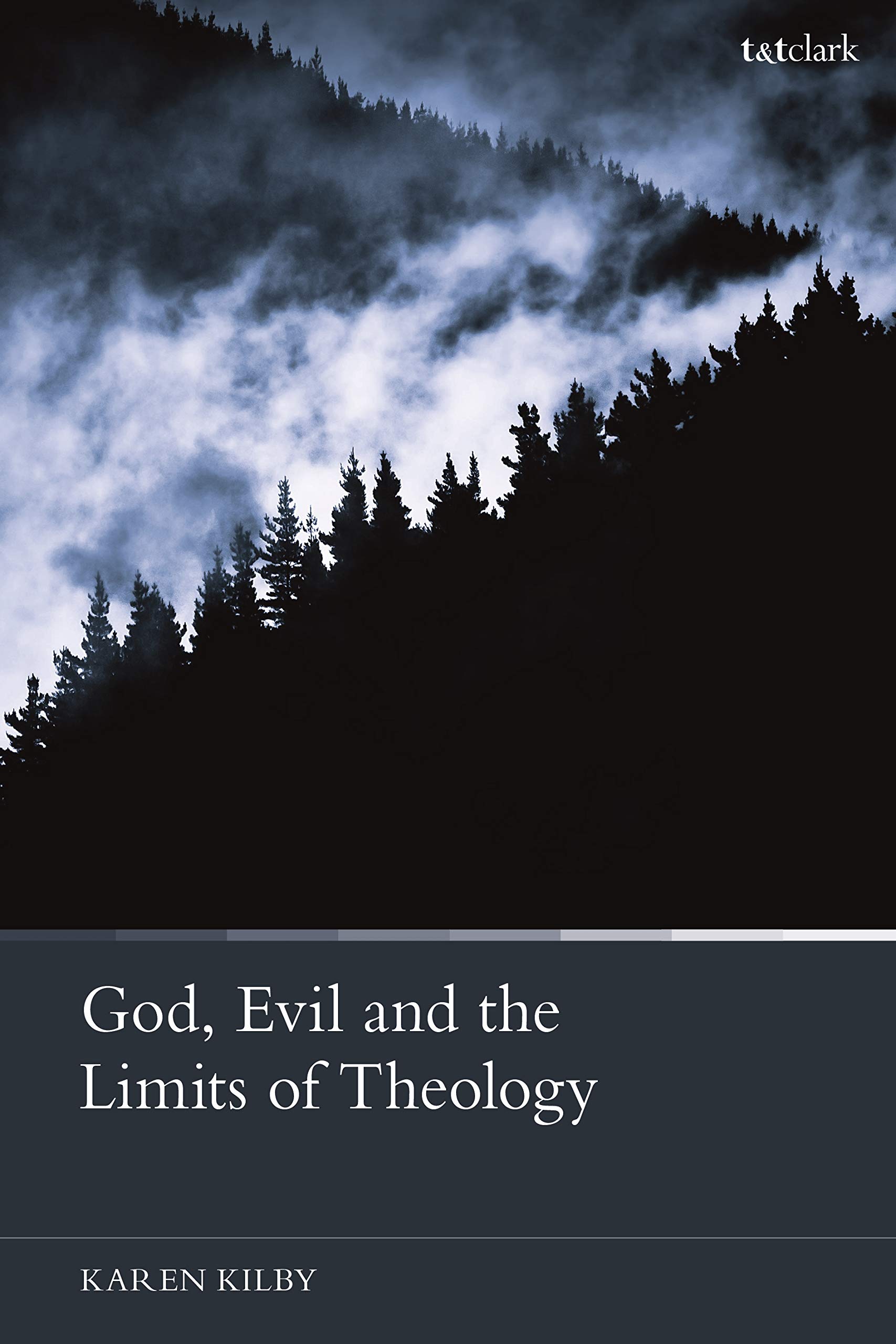
If there’s one thing this year has been good for it’s books. That, and the additional time to read them. The following are some of the most interesting theological books published in 2020 that made the forever staying-at-home life a little more bearable. Click here to see last year’s list.
Paul and the Power of Grace, by John Barclay
It’s been five years since Barclay’s Paul and the Gift provocatively challenged scholarship’s understanding of Paul and his views on grace. The grace of God was indeed everywhere in second temple Judaism, but it was nowhere the same — whether it be Paul or elsewhere. This shorter book both summarizes the innovative theses of his earlier work and extends his argument further into the realms of social practice and the life of the church under grace. Along the way, he offers magnificent readings of Galatians, Romans, and Corinthians that are themselves worth the price of the book. We’ve featured Barclay’s research a number of times on the site, and for good reason: He has single-handedly managed to provide new avenues to explore the multifaceted and dynamic meanings of the grace of God with precision and verve. Having Barclay’s scholarship now available to a wider readership is at least one thing to be thankful for in 2020.
Reading While Black: African American Biblical Interpretation as an Exercise in Hope, by Esau McCaulley
A former student of N. T. Wright, McCaulley found a sizable disconnect between the questions of modern biblical scholarship and his experience growing up in the African American church. Reading While Black seeks to redress this gulf by applying the exegetical tools he’s learned to the modern issues of representation, police violence, and the role of scripture in the lives of Black Americans. Reading While Black advances dynamic readings of scripture that are as timely as they are illuminating. Where many might see cause for despair, McCaulley is able to find hope and grace, while remaining firmly grounded in the realities of life.
The Holy Spirit and Christian Experience, by Simeon Zahl
It’s difficult to over-sell just how much Zahl accomplishes in this volume, a scope that reflects its wide interdisciplinary approach and the author’s ingenuity. The Holy Spirit and Christian Experience brings theology into conversation with social sciences; challenges the post-Barthian suspicion of experience as a barometer for theological reflection; offers a reassessment of Luther’s view of experience; provides a framework for understanding the present activity of the Holy Spirit; and demonstrates the feasibility of traditional reformational theology. I could go on. Zahl’s essential point is that theology is not merely descriptive of God, whose plausibility depends upon rational coherence. Theology is emotionally evocative, taking place within the concrete lived experience of individuals. This emotional salience of doctrines is a key component for assessing their viability and how doctrines work in the real world is a reflection of the doctrines themselves. Accordingly, Zahl illuminates how traditional concepts like sin, grace, and salvation actually function in everyday life. Systematic theologians who wish to be taken seriously (whatever that means) hate to verge into the dreaded terrain of “pastoral theology,” but perhaps they should?
 Christianity’s Surprise: A Sure and Certain Hope, by C. Kavin Rowe
Christianity’s Surprise: A Sure and Certain Hope, by C. Kavin Rowe
For those who’ve enjoyed Tom Holland’s Dominion, this comparatively far shorter book is right up your alley. But rather than a lengthy survey of relevant scholarship, Rowe writes in shorthand for what’s clearly a well-researched and original argument. For Rowe, the “surprise” of Christianity arises precisely from its novelty in comparison with the beliefs and practices of the Greco-Roman world. Sharpening the distinctive profile of Christianity in this way affords commentary on modern culture and Christianity. Many secular values taken for granted today originated within Christianity. But Rowe goes further than Holland to address contemporary Christianity itself — to rediscover the strangeness of what made Christianity so unique and compelling in the first place. Rowe is a big-picture thinker, and this book an achievement in scope and genuine creativity.
Christ and Calamity: Grace and Gratitude in the Darkest Valley, by Harold L. Senkbeil
Of all the pandemic-themed books published this year, this one is easily head and shoulders above the rest. It’s not a book about grand questions of theodicy, answering philosophical quandaries about the existence of suffering in a world created by a good God, but concerns itself with the more real calamities of everyday life. For the Christian, Senkbeil offers a timely reminder of God’s goodness despite widespread evidence to the contrary. Hope and joy are not found amid the fickle ebbs and flows of circumstance, but in the assurance of the word that promises to save.
The Least of These: Paul and the Marginalized, by Carla Swafford Works
In this book, Works successfully corrects an imbalance or mischaracterization prevalent in the church (and the academy) that Paul had little time or concern for the poor and marginalized members of society. Everyone loves the countercultural ethics of Jesus, but Paul’s dense theological musings are the antiquated stuff for theologians and out-of-touch preachers. Paul and Jesus belong on different planets, let alone the same religion — or at least that’s how they are commonly caricatured. But perhaps the issue lies not with Paul, but our own failure to read him well? In The Least of These, Works argues that the modern antipathy toward Paul is misguided and the distance between Paul and current ethical flashpoints is not nearly a wide as many believe. The topics for which Paul is routinely accused today (gender, slavery, ethnicity, poverty, and childhood) are the very places where the revolutionary character of Paul’s ministry is best seen. In doing so, she recaptures the original radicalism of Paul’s message and the shape of his early communities.
Gentle and Lowly: The Heart of Christ for Sinners and Sufferers, by Dane Ortlund
A top-shelf, easy-to-read volume on the merciful character of God. With the aid of some of the better Puritan thinkers, Ortlund assembles a variety of scriptural motifs into a coherent and captivating portrait of a loving God. Whoever we might think God is, he is far more gracious, compassionate, and forgiving than we imagine him to be.
Peace in the Last Third of Life: A Handbook of Hope for Boomers, by Paul F. M. Zahl
The title of this book is a little deceptive. While its intended audience is certainly “boomers,” frequently addressed directly by Zahl, the book is perhaps better characterized as a retrospective reflection on the joy and pitfalls of the first and second thirds of life. The wisdom of elder age (informed by a lifetime of pastoral ministry) is really the insight on life afforded by a “low anthropology.” The things that matter most are not one’s career, children, possessions, or other pursuits. Instead, what makes life worth living is romantic love, the power of non-directive listening, and the supernatural work of the Holy Spirit. In other words, read this book before it’s too late! Full of all the pop-cultural references one might expect from a PZ book, this is an enjoyable read that laces its medicine with a heaping spoonful of humor.

God, Evil, and the Limits of Theology, by Karen Kilby
Every few years for the past two decades, Karen Kilby has quietly published a field-altering theological essay. She possesses a theological BS detector of the highest order, which she deploys to puncture the pretensions of the theologians on a wide range of fashionable topics. In this collection of these profound essays, Kilby is the classic “theologian’s theologian,” the best kind of (constructive) iconoclast. She repeatedly points out where theologians overstep their bounds, pretending that they understand things they do not in fact understand (like the Trinity), or convincing themselves that they can make sense of things that cannot finally be made sense of (real human suffering). In doing so, she calls us to pay attention to what theological ideas actually do in the world, and helps us to recover a reverent sense for the mystery of God. It doesn’t hurt that she is one of the finest theological stylists writing today — altogether, this collection is quite simply a master-class in the art of the written theological argument, and should be required reading for any aspiring theologian. Although the hardcover is on the pricier side, if you can get your hands on this volume, run, don’t walk.
Unveiling Mercy: 365 Daily Devotions Based on Insights from Old Testament Hebrew, by Chad Bird
Guiding the reader through daily readings from the Old Testament with exegetical depth and pastoral skill, Bird illuminates familiar passages of scripture with an eye toward the unfailing mercy of God. He is the master of taking simple Hebrew words or idioms and mining from them a bounty of grace that speaks directly to life’s many challenges, despairs, and joys. Cumulatively, these devotions comprise an irrefutable argument that the God of Jesus and the New Testament is one and the same as the God of Israel, whose merciful character is as unchanging as it is reliable.
Daily Grace: The Mockingbird Devotional, Vol. 2
We’re really proud of this one.

Other Notable Books from 2020:
Pauline Dogmatics: The Triumph of Love, by Douglas Campbell
For those who can’t get enough of Paul and apocalyptic theology, Campbell writes a systematic theology that builds from “the truth of the gospel” up. An invaluable resource with sapient pastoral implications.
Aspects of Truth: A New Religious Metaphysics, by Catherine Pickstock
For those in search of a (religious) philosophy that escapes our current post-truth crisis, Pickstock offers some devastating critiques of Immanuel Kant. A bit of a dense read, but worth the struggle.
The New Cambridge Companion to St. Paul, ed. by Bruce Longenecker.
For those in need of an accessible (and brilliant) introduction to Paul, these essays represent the latest in ground-breaking Pauline scholarship from some of the top researchers in the world.
After Whiteness: An Education in Belonging, by Willie James Jennings
For professors who wish to probe more deeply into the implicit bias of Western religious education. At a time when universities and seminaries are experiencing massive upheaval, Jennings aims for more than mere survival.
Why Would Anyone Go to Church, by Kevin Makins
For anyone who doesn’t really want to go to church anymore and needs a little boost. Full of hard-won insights and grace-drenched stories from the church-planting trenches.
Embarrassing Omission from the 2019 List:
Unbelievers: An Emotional History of Doubt, by Alec Ryrie
Unbelievers was released a bit too late in the year to be featured last year, but still — this Durham University alum should have known Ryrie (professor at Durham) was releasing such a splendid book. Previously featured on the site here, here, here, and here, it’s fair to say this was a Mockingbird favorite over this past year. Unhappy with the now traditional dogma that the philosophy of the Enlightenment drove people away from Christian faith, Ryrie tells a different story. Unbelief was not driven by thought, but emotions. It was not invented by the Enlightenment, but has deep roots that stretch into medieval and reformation church.

COMMENTS
Leave a Reply












